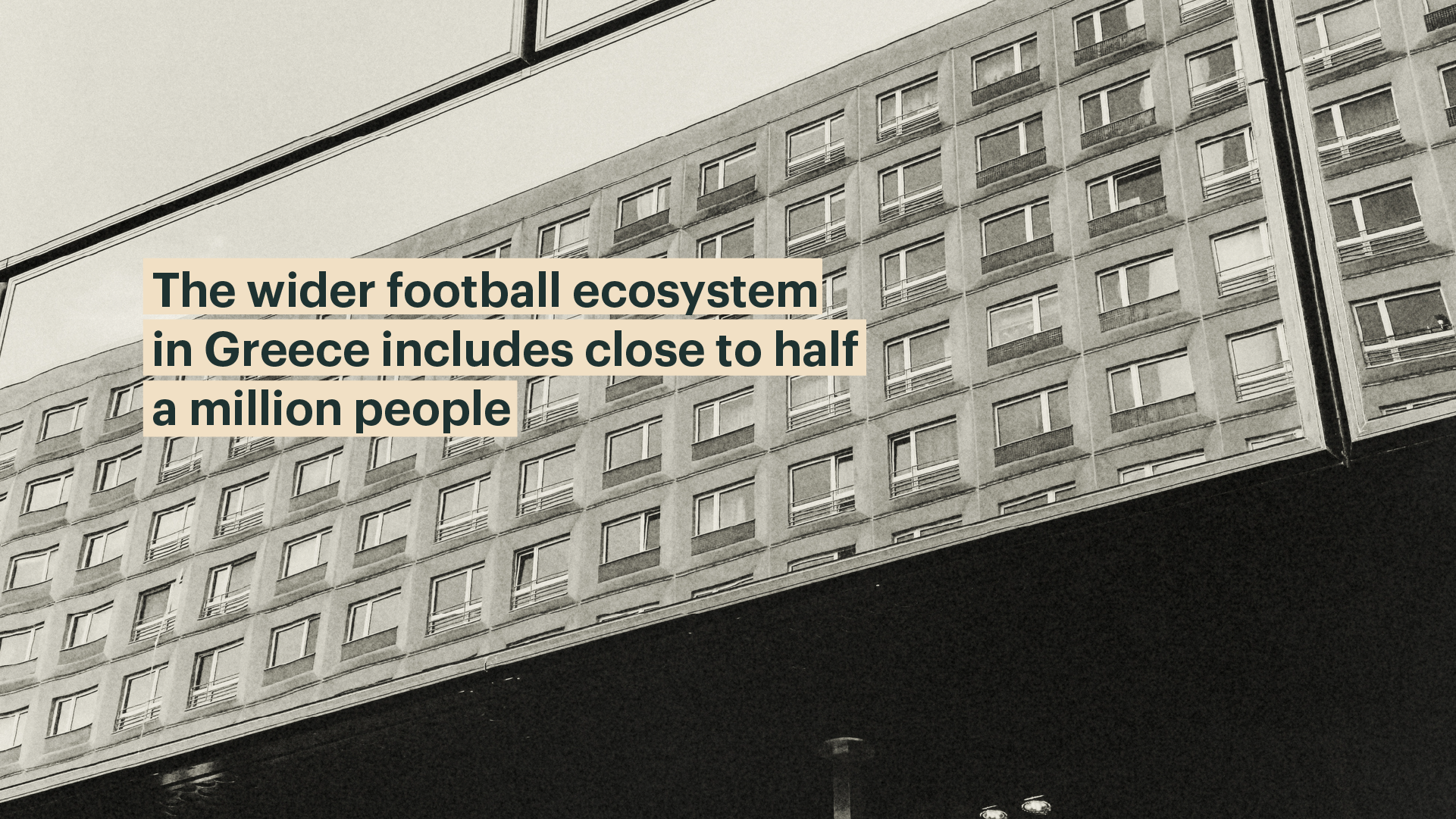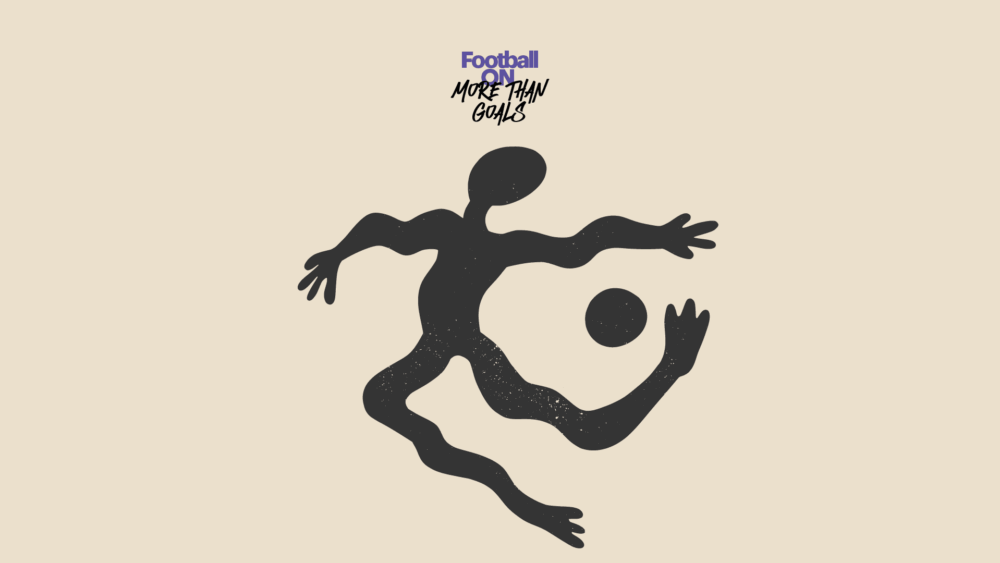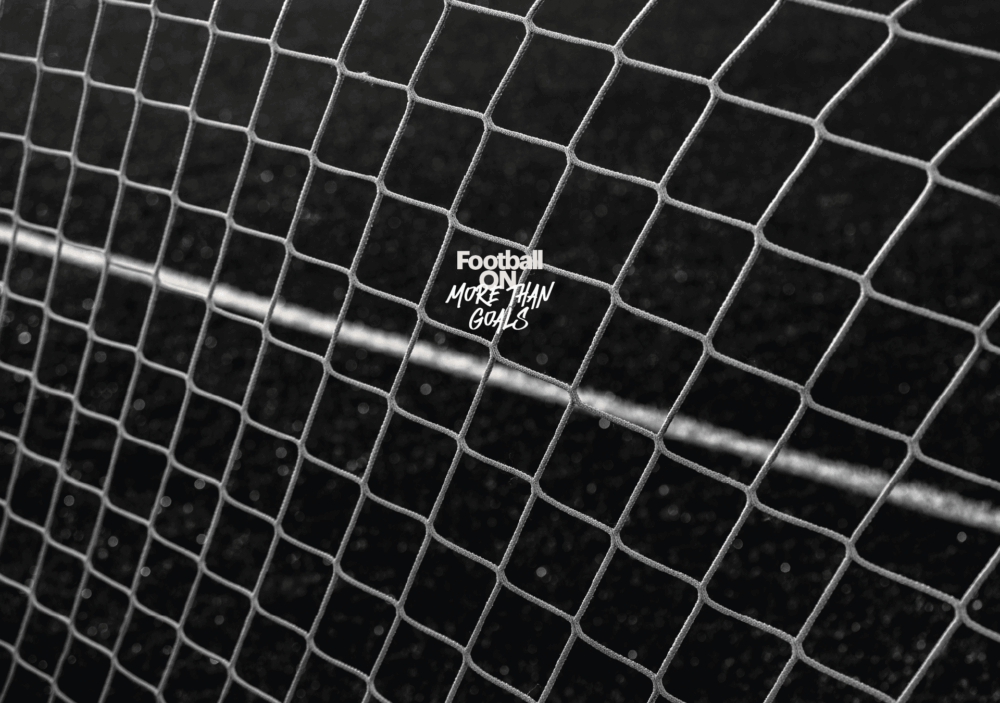
Maria Gkouma: “The wider football ecosystem in Greece includes close to half a million people”
Maria Gkouma is Marketing & Commercial Director at the Hellenic Football Federation (HFF). She participates in ETERON’s FootballON: More Than Goals project, talking about her role at the Federation, the challenges of Greek football, the strategy to attract new investors and sponsors, the HFF’s initiatives on the issue of social responsibility and the different categories of football.
How do you see your role as Marketing and Commercial Director at the Hellenic Football Federation (HFF)?
My role at the Hellenic Football Federation started in July 2021 and is a quite demanding and difficult role, which I am very happy to have taken on. This department covers sponsorships, television rights, merchandising and in general the entire advertising part, marketing as well, all the events we organize, public relations, e-sports and corporate social responsibility.
How does football affect and interact with society? How do you experience this relationship through your role in the HFF?
Football, and world football in general, is an integral part of our society, an assessment that is also verified by the research and data we have at our disposal. Anything that affects society as a whole, by extension also affects football as a whole. A typical example is the financial crisis of 2010, where jobs were cut off, the expenses of all companies regarding advertising were also decreased and at the same time the money given to commercial sponsorships to teams and the football ecosystem as a whole was limited. With the COVID pandemic, we also witnessed exactly the same, as after tourism, the sports industry was the one that was hit the hardest. And yet we found ways to react and move forward with the digital transition, the digital transformation in several areas in order to enable the sports audience to continue watching the sport.
At this time, I could say that we are in a productive strike. The entire ecosystem of the federation is working daily to develop football throughout Greece, promote fair play and support fair competition. We are adding new technologies and responding successfully to all conditions, being particularly proud to serve the most popular sport in Greece. And it is indeed the most popular sport in our country as demonstrated in the most recent surveys that we conducted both internally as Federation and in collaboration with UEFA.
What are the biggest challenges you face in your effort to promote Greek football and make it more attractive to the general public?
We are fortunate to have the men’s national football team, the “flagship” of Greek football, in excellent shape. A team that unites us all and makes the Greek people proud. Connecting the past with the present, the achievement of 2004 is a unique “success story” on a global level, an unprecedented story in world football and a huge legacy and the biggest challenge for us is to keep the new generations close to the sport and to create the future footballers, but also to have the young, loyal fans of the sport with us. A big challenge for Greek football in general is to manage to measure the people’s love for the sport, but also to modernize it on many levels, following the very good practices that exist internationally.
How do you evaluate the commercial potential of Greek football and what is the strategy of the Hellenic Football Federation for attracting new sponsors and investors?
As we mentioned above, football is the most popular sport and the numbers always tell the truth. According to the data we have at our disposal, the wider football ecosystem includes close to half a million people, if we include all professional and amateur athletes, coaches, administrative agents, those who are involved in the sport daily in various positions. So we see a pool of potential customers and a very important advertising field, with a wide age and demographic range. For a company that wants to sponsor, to invest in a football product, its success is a given.
As a Federation, we have developed a wide range of products and have formed a different promotion plan for each one, depending on the requirements and goals set by a company. We direct each company to invest in products that match its data and goals, whether this is the Greek Cup, or women’s football, which has started very strongly to enter the European markets and the USA, presenting growth trends in Greece as well. We are still at an early stage, as the championship is not professional but semi-professional, but we see that more and more girls are involved in football, the national team has players who compete in foreign championships and this means that we are starting and highlighting new athletes who promote the sport and women’s football in the country.
It is of utmost importance that our partners are completely satisfied with the entire sponsorship and that their investment fully meets what they want, their expectations. New sponsors have started to come to the federation, while we are deepening our cooperation with those we already work with and they are very happy with the services they receive from us.
You talked about women’s football and we would like to ask you in what ways the Hellenic Football Federation supports the development of women’s football. Also, what is the role of the Federation when it comes to football for people with disabilities, as well as in the issue of combating racism and violence on the pitch? Three different issues, each of which is equally important and crucial.
The Federation, in the context of promoting the sport and strengthening social contribution, has developed actions throughout Greece, mostly through the football secretariat, but also within the framework of its social and environmental sustainability program. There is also the UEFA FootbALL campaign that is currently running with the central message that football is accessible to everyone, is for everyone, without exceptions, against racism, discrimination and violence. The football we love and serve is exactly that; a sport without any tolerance for all these phenomena.
Especially for women’s football, the Federation wants to consolidate it, develop it, support its promotion and highlight the importance of inclusion, to eliminate the stereotype that football is a “male-dominated” sport. Our main goals are to strengthen engagement with women’s football, to strengthen brand equity in relation to other sports chosen by women, to keep the players who are already competing close to the sport. And all the other departments of the Federation, the competition, the strategic development and the National Teams have developed plans whose main axis is the development of the sport through targeted actions.
The Disabled Persons’ Federation is responsible for football for people with disabilities, as well as for all sports and teams in which people with disabilities compete. However, we are taking several actions and have excellent cooperation with the respective Federation. We are starting with Blind Football, a relatively organized sport, where there are two teams in Athens and Thessaloniki and we have had two international tournaments so far. We support whatever is needed, but also through our own funds when we have the opportunity. We also want to start actions with the amputees’ team and with Deaf Football, which are not as organized as Blind Football, with the plan in the coming years to move forward with organized actions in this area as well. I am also bringing refugee football into the discussion, an important part of football in general. We have already organized a tournament here and a corresponding tournament for refugee children in Chios, to contribute to their integration into the society, while at the same time we have proceeded with seminars for adult refugees on environmental sustainability issues. We took part with the Greek team in the tournament organized by UEFA, participating for the third year, and recording a remarkable course.
What is your opinion about the image of Greek football abroad? Or, to put it differently, what feedback do you receive from your counterparts in other European federations?
Greek football, both due to the successes that the national men’s team has had, but also due to our clubs’ performance in recent years, is appreciated by the other European federations. There are countries that are traditionally much more developed than us in terms of football, such as in England for example, where the sport itself was born, developed and evolved at all levels. Football is a product and we must treat it as such. This is what I learned from my studies in Liverpool, this is what I learned from my experience and what I experienced in a city that lives and breathes football, something to which our own mentality in Greece is gradually adapting. It is extremely positive that there are seminars organized by UEFA and FIFA with the aim of bringing us together from all the Federations, exchanging good practices and knowledge and evolving.
In the same context, what are the long-term and short-term goals of the Hellenic Football Federation for Greek football?
In terms of marketing and commercial development, the long-term goals for Greek football are to remain the most beloved sport in Greece, to further increase brand awareness and fan loyalty, to continue building the strategic relationships we have and to make the digital transition we need, to leave the analog world if we can say so and enter a new, modern digital environment. As for what now has to do with the short-term goals, I will simply repeat the expressed commitment of the Federation’s management to qualifying for the 2026 World Cup and to acquiring a training center for the National Teams (i.e a goal fulfilled recently, after the conduct of this interview).
Could our country host a major international tournament such as, for example, the World Cup or the Euro? Are we very far from such a development or not?
In the past year and a half or so, our country has hosted two very big football events: the European Super Cup in August 2023 at the “G. Karaiskakis” stadium and the Conference League final in May 2024 at the “OPAP Arena”. Two very demanding events, through which we have proven that we can organize such important events and cope with all relevant challenges.
The prospect of undertaking a major event is comparable to the Olympic Games, which means that it is a national event that concerns the country and not just its football federation. In order to host a World Cup, for example, very significant investments will have to be made in infrastructure, mainly in sports facilities. We will have to prepare several years before their holding, so it is a project that has a very long-term goal.




